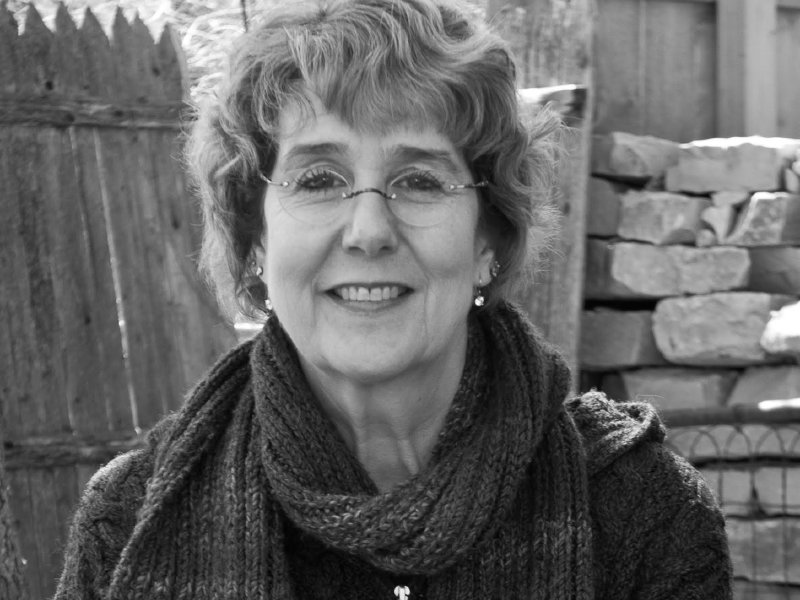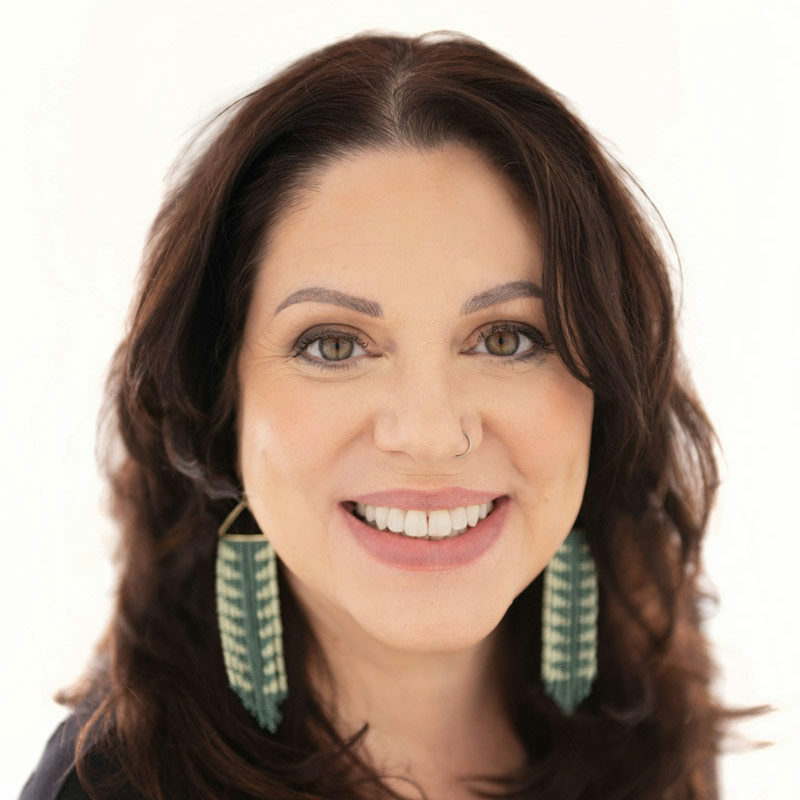Judith Harway is a professor of writing at the Milwaukee Institute of Art and Design (MIAD). She has authored three books of poetry and recently wrote a memoir called "Sundown: A Daughter’s Memoir of Alzheimer’s Care" that was published by Branden Books.
The 244-page book documents Harway’s personal experience with her mother’s struggle with Alzheimer’s and makes wider commentary on the market-driven American health care system.
Harway will discuss and sign copies of her book on Tuesday, Jan. 13 at 7 p.m. at Boswell Book Company.
OnMilwaukee.com recently talked with Harway about grief, parenting your parents, health care and how to nurture a sense of humor in the midst of heartbreak.
OnMilwaukee.com: This is your first book that's not a collection of poetry, right? How long did it take you to write and was the writing process different from your past experiences? If so, how?
Judith Harway: Yes, "Sundown" is the first book I've published that is not a collection of poetry. That said, I've been publishing articles and essays for decades. And, although the writing process is different for every project, the year that I spent writing "Sundown" felt like a year of writing poetry in many ways: the book evolved as a series of short vignettes, mini-narratives and meditations that explored the experience of accompanying a parent with dementia to the end of her life. Thanks to a sabbatical year from MIAD, I had the time to immerse myself fully in the research, remembering and writing that enabled the book to take shape.
OMC: How long did your mom have Alzheimer's? What were the early signs and where is she with it now? What has your role been during this journey?
JH: My mother passed away in December 2010, after nearly 10 years with Alzheimer's. The early signs of her disease were easy to overlook – forgetfulness, increased frustration and anxiety, occasional disorientation. She was an extremely smart and upbeat person, so she covered up her early symptoms well. My father sought to protect her – and the rest of us – by trying to keep her illness a secret; although he resisted accepting any outside support, he was an amazingly tender and attentive caregiver until mom's symptoms and behavior became too much for him to handle.
For most of mom's journey with Alzheimer's, I was primarily just her daughter, a role that is happier and more freeing than being a caregiver; over the last couple of years of her life – and particularly through the summer and fall of 2010 – my caregiving role escalated as I tried to put in place the necessary support systems that were long overdue. In those final months, as mom spiraled down into many of the scarier symptoms of Alzheimer's, like delusions, paranoia, combative behavior, I tried to be both my mother's primary caregiver and my father's protector, while not losing sight of the importance of still being just a daughter.
OMC: What is it like to take care of your parent?
JH: Caregiving is one of the most intense forms of intimacy possible. Here's this person, your parent, who gave you life in the first place – the person from whose body you emerged, whose genetic material and nurturing have laid the essential foundations of your being and suddenly you have responsibilities that flip every part of your relationship upside down.
As her disease advanced, my mother often seemed childlike; as her child, I often struggled with the confusion and grief of losing her adult self. And one particularly cruel aspect of Alzheimer's is that memory loss sort of counts backwards, as short-term memory tends to dissolve first. It's painful to witness your parent forgetting recent periods of her life, then successively less recent periods, until your own life as her child is largely forgotten.
Caregiving for an elder is often likened to parenting one’s parents. There are so many ways, however, in which this analogy fails. Parenting a child is a joyful, growing act, while caring for an elderly parent means staring into the face of mortality. Besides, young children want to be parented, while most elders chafe at the loss of independence, the shift in the family balance.
As I write about it in "Sundown:" "Parenting a child can be so redemptive and hopeful that you may as well be nurturing yourself; parenting a parent reminds you, at every turn, of what you cannot do, what you cannot save, as life winds down inexorably towards death."
OMC: How do you keep the book content upbeat and even humorous?
JH: I suspect that most anyone who has cared for a loved one with dementia can tell you that there are moments when the awful misfiring of the human brain can be pretty darn funny. My mother was an extremely articulate person, and over the years she lived with Alzheimer's she narrated the increasing chaos inside her head as if reporting live from a disjointed dream.
Often, as my mother declined, I'd call my sister, who lives in New York, and our conversations would veer wildly between laughter and tears. It's a cliche to say that we laugh to keep from crying, but as with most cliches, there's a measure of truth there as well. Before Alzheimer's, my mother was blessed with a winsome sense of humor – and until pretty late in the game I could still make her laugh. As I was working on the book, there were funny stories that simply insisted on being included. Mom would never have begrudged us the healthy option of whistling and laughing past the graveyard.
OMC: Where can people buy this book?
JH: The best way for readers to get a copy is to visit one of Milwaukee's amazing independent booksellers, Boswell Books (2559 N. Downer Ave.) or Woodland Pattern Book Center (720 E. Locust St). The book is also available in both paperback and e-book form from Amazon.com.
OMC: What do you want people to learn about Alzheimer's or the health care system from reading your book?
JH: At present, there are around 6 million Americans afflicted with Alzheimer's disease, and millions more family members coping with the demands of caregiving. And, although organizations like the Alzheimer's Association do a wonderful job of advocacy, the reality of the market-driven health care system is that care is expensive and often hard to access, and that there are few safe places for a person with advanced dementia. With increases in longevity, Alzheimer's has become so prevalent that it sometimes seems difficult to engage in extended conversation with anyone above the age of 45 without the topic of caregiving coming up.
Women bear a double burden with Alzheimer's: one in six women in the United States eventually develops the disease (as opposed to one in 10 men), and there are strong genetic indicators for who will be afflicted in the next generation. The most common profile of a dementia caregiver is a woman in her 40s or 50s who works full-time outside the home, which pretty much sums up my story.
In "Sundown," I wrote the book that I wish had existed to accompany me on my journey through my mother’s last days: a book that could validate my experience as a daughter and caregiver by squarely facing the helplessness and hopes inherent in those roles, by acknowledging the importance of laughter in the face of loss, by encouraging advocacy for loved ones who no longer have a voice and by illuminating the failures of the American health care system to deal with this growing crisis.
OMC: Can you share a little bit about your life: where you grew up, went to college and your role at MIAD?
JH: I grew up in Rochester, N.Y., and later in Pittsburgh, and my college years were split between the University of Michigan and Wesleyan University in Connecticut, which is where my relationship to poetry really began to deepen. After college, I thought I wanted to go into arts administration, a detour which taught me that what I really wanted to do was write and teach. I have an MFA in poetry from Columbia University.
After teaching at a number of other colleges and community-based programs, I landed at MIAD about 20 years ago, and my official title is professor of writing. While I've enjoyed every student population I've ever worked with, the creative energy of MIAD students is endlessly invigorating.
OMC: Was writing the book a cathartic experience for you?
JH: In many respects, writing was my way of grieving. But grief is a complex and private thing, and by itself it certainly doesn't make a book worthwhile. I believe that the most profound stories of our lives are both particular and universal – the power of stories is their potential to connect one person's experience to another. I believe that stories of the "sandwich generation" need to be told for many reasons: if "Sundown" serves to validate the stories of other caregivers, to raise awareness of the challenges that caregivers face, and to remind others that they are not alone in nursing a loved one with this devastating disease, I will be content.
As I helplessly watched my mother plunge into an underworld of delusions and paranoia, I groped my way through the miasma of round-the-clock caregiving and attempted advocacy for a loved one who was no longer able to speak for herself. Exhaustion, stress, guilt, and an abiding sense of inadequacy made it seem all but impossible to come up for air.
And yet, there are redemptive aspects of nursing a loved one through end-stage dementia: inexplicably, while muddling through crises, making endless mistakes, reaching life and death decisions with inadequate information and a whopping sleep deficit, forgiveness sneaks into your heart and you start remembering the importance of saying "I love you."
– From "Sundown: A Daughter’s Memoir of Alzheimer’s Care"
Molly Snyder started writing and publishing her work at the age 10, when her community newspaper printed her poem, "The Unicorn.” Since then, she's expanded beyond the subject of mythical creatures and written in many different mediums but, nearest and dearest to her heart, thousands of articles for OnMilwaukee.
Molly is a regular contributor to FOX6 News and numerous radio stations as well as the co-host of "Dandelions: A Podcast For Women.” She's received five Milwaukee Press Club Awards, served as the Pfister Narrator and is the Wisconsin State Fair’s Celebrity Cream Puff Eating Champion of 2019.







